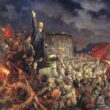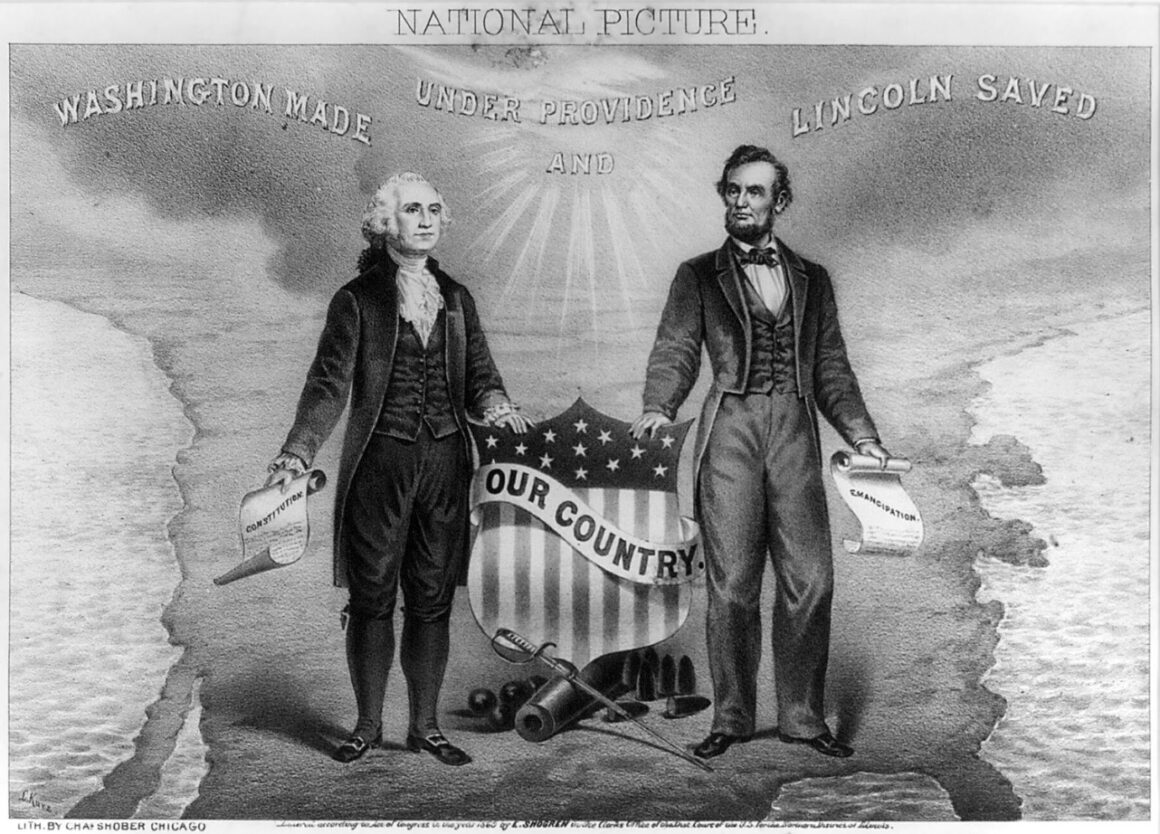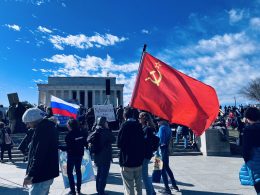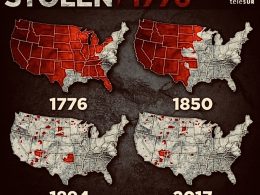Juche is a universal part of communist theory, because its practices aren’t just applicable in its origin country of Korea; Juche can be practiced anywhere. And for U.S. Americans, one of the most important lessons Juche can teach us is that revolutionaries must recognize their own people’s progressive achievements. That they must account for the history of revolutionary struggles within their own countries, rather than merely focusing on other countries and their struggles. In our rhetoric and our educational efforts, there must be a balance between the foreign and the domestic. Which is something that’s highly relevant to this historical moment, when China is rising and a multipolar world is coming into being.
All Marxist-Leninists who understand geopolitics are celebrating these developments, and are putting focus on the accomplishments of China, Cuba, Venezuela, and the other anti-imperialist countries. But for us within the United States to win the class struggle, we need to also uphold the progressive victories which our own people have won.
“Patriotism and internationalism are inseparable,” concluded Kim Il Sung. “He who does not love his own country cannot be loyal to internationalism, and he who is unfaithful to internationalism cannot be faithful to his own country and people. A true patriot is precisely an internationalist and vice versa. If we cast aside all that is good in our country and only copy and memorize foreign things in ideological work, it will certainly bring losses to our revolution, and thereby prevent us from properly carrying out our internationalist obligations to the international revolutionary cause…What is Juche in our Party’s ideological work? What are we doing? We are not engaged in any other country’s revolution, but precisely in the Korean revolution. This, the Korean revolution, constitutes Juche in the ideological work of our Party. Therefore, all ideological work must be subordinated to the interests of the Korean revolution.”
One could mistake this as meaning that Juche is simply socialism applied to Korea; but the aspect of applying socialism to Korea’s conditions is only a function of Juche theory, which can be implemented within any country. And in the United States, Juche entails incorporating the USA’s unique revolutionary experiences into how we think about class struggle.
We must recognize the progressive significance of 1776, the USA’s civil war, and all the country’s other historic struggles against reactionary forces. And those two struggles in particular are important to emphasize, because today’s prevailing “Marxist” thinking in the United States disregards their significance. Because liberal academia has co-opted Marxism in the USA and other imperialist countries, the default “communist” view in modern America is that the Founding Fathers should be discarded, along with Lincoln.
The reasoning behind this notion is that these figures had a role in colonialism; but it’s possible to account for the realities of colonialism, without minimizing the contributions which 1776 and the Civil War represented. And investigating the progressive aspects of these histories is crucial to understanding the nature of our modern class struggle, which fundamentally connects to these past revolutionary events.
To fight capitalism today, we need to understand the nature of modern capitalism, and see how its character has changed; how since the 19th century, we’ve been in the age of monopoly finance capital. This new stage has made it so that colonialism, at least as it used to exist, is no longer the central driving force; the finance monopolists don’t need to rely on colonialism’s method of primitive accumulation, where capital gains wealth through crude resource extraction.
Capital’s primary form is now international in nature; the dominant wing of our ruling class is mainly invested not within North America’s local extractive projects, but within global finance. And for well over a century, the American settler-colonial project has been in a different evolutionary stage than it was initially; whereas at first the primary fight was between colonizers and colonized, now the main exploited class is a de-industrialized proletariat, one which encompasses peoples of all colors and nationalities. This change has had everything to do with the rise of monopoly capital, because it was monopoly capital that placed the settlers in an exploited role.
The conditions of occupied Palestine, where settler-colonialism continues to exist in its old form, can’t be accurately analogized to the conditions of the modern United States. Here, the settler project has given way to a multinational financial imperialism, so the white population doesn’t hold the same role that the colonizers in occupied Palestine do; the power structure has become less racial, and more class-centric.
Because today’s primary struggle is between the proletariat and the monopoly capitalists, even when the modern imperial state makes land grabs it’s not of the same nature as the original colonialism. Trump’s projects to seize the Panama Canal, and to buy Greenland, can’t be explained by simply calling them “colonialism”; they’re taking place in a different historical context, where the driving force is global financial power. Trump is doing this mainly to try to win the geopolitical fight with China and Russia, not merely to extract; extractivism is still an element of what the imperial state does, just no longer the primary element. Our analysis must account for this. The old reality can’t be imposed upon the new reality, or else we can’t effectively combat the capitalism of today.
The old colonialism didn’t need to evolve into something else in order for 1776 to be progressive, or for supporting the Union against the Confederacy to be the correct position. The American revolutionaries were on the right side of history for fighting the British monarchy, and Karl Marx sided with the Union because that was always the only sound stance for communists to take. For us to uphold 1776 and Lincoln today, though, after the country’s working class has come to have many generations of historical struggle, is even more impactful. Because the passage of time, and the sacrifices of the country’s proletarian heroes, have given us an even more powerful story to tell the USA’s people.
Modern U.S. communists have a tome of proletarian stories to draw from; because of how late we were born, we have the ability to connect a vast saga of class struggle to those earlier revolutionary victories. We can read William Foster’s American Trade Unionism, and the other works that have chronicled the U.S. proletariat’s resistance to monopoly capital. We can look at the present revival of workers uprisings, where strikes have been increasing over the last decade. When one connects these newer stories to the country’s first century of revolutionary struggle, and fits all of this history’s chapters into a complete analysis, one can present the people with a gargantuan tale. A tale that they’ll relate to on an extremely deep level, because they’re the protagonists of it; most of them just don’t know it yet.
This is the value of Juche: it guides revolutionaries to become storytellers about their own country’s people. It gives the masses a type of inspiration that can only be found from learning the story of one’s collective family. Most of the U.S. workers who will have a role in the coming great workers victory haven’t yet become connected with the struggle; showing them their own story will give them that sense of clarity and purpose.
————————————————————————
If you appreciate my work, I hope you become a one-time or regular donor to my Patreon account. Like most of us, I’m feeling the economic pressures amid late-stage capitalism, and I need money to keep fighting for a new system that works for all of us. Go to my Patreon here.
To keep this platform effective amid the censorship against dissenting voices, join my Telegram channel.








